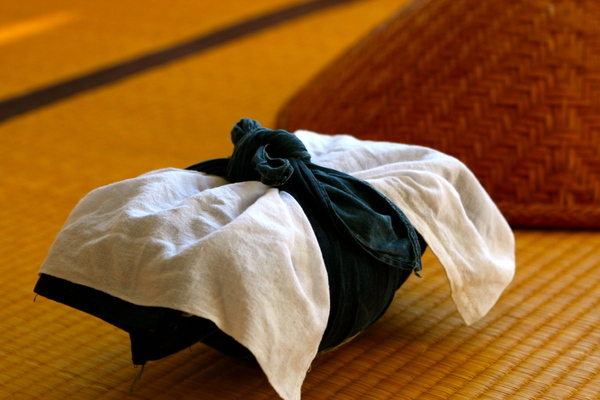A Meditation on Giving and Receiving

First, 72 labors brought us this food; we should know how it comes to us.
Second, as we receive this offering, we should consider whether our virtue and practice deserve it.
Third, as we desire the natural order of mind, to be free from clinging we must be free from greed.
Fourth, to support our life, we take this food.
Fifth, to attain our Way we take this food.
– Zen oryoki chant
Whenever I’m struggling with asking for some kind of help, I often think of the Zen practice of oryoki. While it’s been a while since I’ve been part of a retreat where oryoki takes place, the ritual is still deeply embedded in my body.
During longer retreats (called sesshins), we eat our meals inside the zendo (meditation hall) in a practice called oryoki, from a Japanese word that means “just enough.” It’s a beautiful and intricate ceremony with very specific protocols for how one receives the food being offered.
(If you and I ever get a chance to meet in person, ask me about my first encounter with oryoki. It’s a pretty hilarious story worthy of a wacky Marx Brothers movie…. but we’ll save that for another time!)
In an oryoki ceremony, servers kneel down in front of each person and carefully spoon ladles of rice, soup, or whatever might be in their container into one of the three bowls of the meditator. Once everyone has been served, meditators are invited to consider the source of these foods and offer gratitude in the form of a humble bow.

photo: A. Jesse Jiryu Davis
The main point of oryoki practice, as I understand it, is to realize that “giver, receiver, and gift” are inseparable.
As we engage in this practice we begin to learn how to give from a full heart, without attachment, and how to receive with grace and gratitude.
Taking part in oryoki ceremonies over the years has taught me a lot about understanding giving and receiving in a non-transactional way.
So often we give something with an expectation that we’ll get something back, whether that’s a material object, prestige, respect, or even love. This kind of quid pro quo feels forced and awkward – and it’s exhausting. It is one of the reasons why many of us avoid asking for help.
But what if we look at giving and receiving in another way? If we understand that we live in an interdependent world, to use Thich Nhat Hanh’s phrase, we see how we need each other to survive and thrive. We offer people a gift when we invite them to help us, in a genuine way that is based on relationship rather than transaction.
Think about a time when you gave something to an individual or group and it felt really great. You actually couldn’t wait to offer your money, time, or expertise. What was it that made the difference? Why did that act of giving feel like a joy rather than an obligation or imposition?
My guess is that first of all you felt an affinity with the person doing the asking—even if you didn’t know them well. Maybe they reminded you of a younger version of yourself. Second, that act of giving connected you with the asker in an intimate way, and we live in a society that is starved for true intimacy. Finally, your own joy may have increased as you saw the recipient of your gift be able to do something they couldn’t do without your assistance.
I invite you to consider all this as you notice any resistance that may arise as you consider asking for help (I promise I will too!).
What if, in asking another person for help, we are actually offering a gift to them? How might this awareness change the way you enter into a request for help? It’s a powerful practice – give it a try.
I’d love to stay in touch with you! When you sign up for my mailing list, you’ll receive my monthly fully moon letter with reflections on life and liberation.


